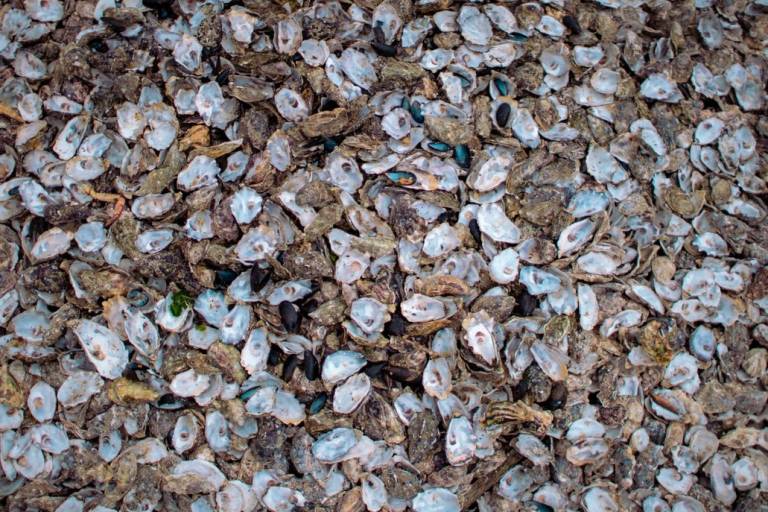Will seashells and eggshells change the game in sustainable infrastructure?
4 November 2021
Dr Ana Heitor’s research project into alternate sources of calcium for the production of lime could be a game changer.

Lime, an essential material within construction, is currently sourced using an unsustainable solution. Sourced from quarrying of limestone and chalk, this is causing abiotic depletion and carbon emissions, amongst other substantial environmental effects. In particular, abiotic depletion can harm the soil stability, not only impacting its ability to support life, but harming its possible uses in transport infrastructure. For example, the UK rail sector alone is impacted by up to £50-100m/year in delays associated with the impact of sub grade soils.
Meanwhile, calcium carbonate wastes (CCW) are abundant.
At 95% & 96% calcium carbonate, seashells and eggshells (respectively) are ideal alternate source materials for lime. Now, this waste can’t replace total demand for calcium carbonates - but has the capacity to support the stabilisation of soils.
Benefits of this research project include:
- Reducing environmental impact of quarrying limestone
- Restoring the natural environment
- Diverting egg and seashell waste from landfill
- Enhancing soil strength, particularly reducing its’ susceptibility in flood-risk locations
- Reducing energy required in the processing of calcium carbonate
The future for this project is dependent on the proof of its feasibility. However, once proven, CCW lime in lieu of mineral-based lime can be more thoroughly tested for wider spread use. Aligning with the UK government’s commitment to lower construction carbon emissions, as well as the European Commission’s goals towards a circular economy, this could pave the way for sustainable, widespread circular lime production.
Dr Ana Heitor’s ‘Sustainable infrastructure construction and repair using calcium carbonate waste (CCW) lime’ project was one of two projects to achieve Feasibility Funding in this funding call. The other funded project has been awarded to Dr Teresa Domenech, co-investigator of the ICEC-MCM, for her project CircTex.
This funding was awarded as part of the CE-Hub's £500,000 Feasibility Fund. The funding call was launched in June 2021, with further calls planned for 2022 and 2023 for Feasibility Studies up to the value of £50,000.
Register your interest in our newsletter to receive updates about future funding calls and much more from the ICEC-MCM centre:
 Close
Close

